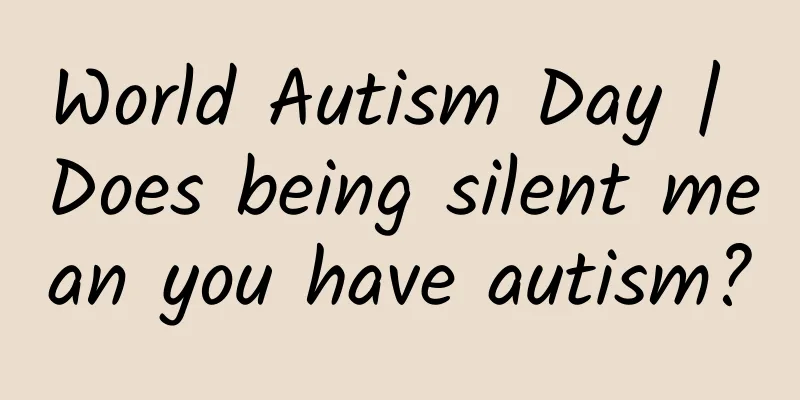[Health Lecture] "Medicine" keeps you safe - How should the elderly use medicine?
![[Health Lecture] "Medicine" keeps you safe - How should the elderly use medicine?](/upload/images/67f0f9e985947.webp)
|
In order to ensure the popularization effect of learning health knowledge in the "2024 China Senior Health Knowledge Competition", the organizer has collected various health science articles suitable for the elderly to learn from various hospitals. We will share them through the "Health Lecture" column. Today, Ms. Li Miao from the 731 Hospital of China Aerospace Science and Industry Corporation will talk about "Medicine Keeps You Safe - How the Elderly Should Use Medicines". Elderly friends are welcome to learn. As people age, their physical functions gradually decline, and various chronic diseases and geriatric diseases follow. As an important means of treating diseases, drugs play an indispensable role in the daily lives of the elderly. However, improper use of drugs by the elderly often leads to a series of adverse reactions and even endangers their lives. Therefore, how to use drugs safely and effectively has become an important issue that the elderly and their families must pay attention to. 1. Common diseases and medication characteristics of the elderly Common diseases among the elderly include hypertension, diabetes, coronary heart disease, osteoporosis, etc. These diseases often require long-term medication. In addition, the elderly are often accompanied by physiological characteristics such as decreased liver and kidney function and decreased drug metabolism ability, which changes their sensitivity and tolerance to drugs. Therefore, the elderly need to pay special attention to the dosage, usage and side effects of drugs when taking medication. 2. How should the elderly use medicines safely? 1. Follow the doctor's instructions and take the medicine on time. The elderly should strictly follow the doctor's instructions to take the medicine. Do not increase or decrease the dosage or change the medication time at will. If you need to adjust the medication plan, you should consult a doctor in time and do not make decisions on your own. 2. Understand the effects and side effects of drugs. The elderly should understand the main effects, usage, dosage and possible side effects of the drugs before taking them, so as to promptly detect and deal with adverse reactions during use. 3. Pay attention to drug interactions. Elderly people often suffer from multiple diseases at the same time and need to take multiple drugs. At this time, you should pay attention to drug interactions to avoid adverse effects between drugs. 4. Check your body regularly and adjust your medication regimen. The elderly should undergo regular physical examinations to understand their own health conditions and adjust their medication regimens based on the examination results. 3. Beware of multiple medication use 1. Repeated medication Some elderly people may take the same medicine repeatedly due to memory loss or lack of medication knowledge. This may lead to drug overdose and cause serious adverse reactions. Therefore, the elderly and their families should regularly organize their medicine boxes to avoid repeated purchases and use of medicines. 2. Buy medicine on your own Some elderly people may buy and use drugs on their own because they believe in advertisements or recommendations from others. This practice may cause the drugs to be inappropriate or interact with other drugs, affecting the treatment effect. Therefore, the elderly should buy drugs under the guidance of a doctor and should not buy drugs blindly on their own. 3. Abuse of health care products Some elderly people believe that health care products can replace drugs to treat diseases, and even rely too much on health care products. However, health care products are not drugs and cannot replace regular treatment. Excessive use of health care products may increase the burden on the body and even cause adverse reactions. Therefore, the elderly should treat health care products rationally and follow the doctor's advice for treatment. 4. Preventing adverse drug reactions 1. Observe your body’s reactions Elderly people should closely observe their body reactions during medication, especially when using new drugs for the first time. If any discomfort or abnormal reactions occur, they should seek medical attention in a timely manner and inform the doctor of the drugs they are taking so that the doctor can adjust the medication regimen or take appropriate treatment measures. 2. Pay attention to dietary adjustments Some drugs may interact with food and affect the efficacy of the drug. Therefore, the elderly should pay attention to dietary adjustments during medication, follow the advice of doctors or nutritionists, and arrange their diet reasonably. 3. Exercise moderately and maintain a good work and rest schedule Moderate exercise and a good work and rest schedule can help improve physical function and enhance the efficacy of drugs. The elderly should choose appropriate exercise according to their physical condition, and maintain adequate sleep and a regular work and rest schedule. 5. Tips to remind you to take medicine 1. Use a pill box Elderly people can use medicine boxes to pack the medicines they need to take every day according to dosage and time, so that they can be taken on time. At the same time, medicine boxes can also help avoid duplication or missed medications. 2. Set a reminder alarm Elderly people can set alarms on their mobile phones or electronic devices to remind themselves to take medicine on time, which can avoid forgetting or delaying medication to a certain extent. 3. Joint management with family members Family members can manage medications with the elderly, helping them record medication usage, reminding them of medication time, etc. At the same time, family members should also pay attention to the elderly's physical condition and medication reactions in a timely manner, and communicate with doctors in a timely manner if any abnormalities are found. In short, medication safety for the elderly is extremely important. Only by following the doctor's advice, understanding the effects and side effects of drugs, being alert to multiple medication phenomena, preventing adverse drug reactions, and taking appropriate medication methods can we ensure the safety and effectiveness of medication for the elderly. Let us work together to protect the health of the elderly! Author: Li Miao Image: Qiantu.com About the Author Li Miao, head nurse, graduated from the Nursing Department of China Central Radio and Television University in 2015. She has been working in the Department of Cardiovascular Medicine of the 731 Hospital of China Aerospace Science and Industry Corporation since September 1, 2009. From February to May 2023, she studied "Cardiac Rehabilitation" at the Cardiac Rehabilitation Center of Beijing Fuwai Hospital and obtained the honorary title of "Excellent Training Nurse". Participated in the recording of the "Sunset Red" 20230609 Reshaping Life Program. Participated in 2 national-level projects, published 4 papers, authorized 8 utility model patents, and 2 invention patents. Proficient in various critical rescue, good at cardiac rehabilitation nursing, and cardiopulmonary exercise experiments. |
<<: Decreased immunity, hair loss, loss of appetite? Latest research: Your body may be lacking TA...
>>: My eyes tear up when the wind blows. Is this a disease?
Recommend
What causes women to sweat at night?
Summer is here and people sweat easily after a li...
Women's menstrual period will undergo such subtle changes
For women, the menstrual period can be said to be...
How to check for two cancers
Have you heard of the two cancer screenings often...
What is the reason for a small lump under the nipple?
There are small lumps under the nipples. This sit...
What injection should I take for less menstruation
The amount of menstrual flow in women is also an ...
Menstruation suddenly came and then stopped
Every girl's menstrual period has its own reg...
Always feel exhausted after dialysis? These 5 ways to help you regain your energy!
For many patients receiving dialysis treatment, a...
How to maintain women's menopause
We know that female friends are prone to some abn...
The benefits of eating sweet potatoes for women
Sweet potatoes are a delicacy that people like to...
What is the difference between multilayer board and ecological board? What are the advantages of solid wood multilayer board?
Many home improvement friends cannot clearly dist...
What should pregnant women do if they have cough and asthma?
Many female friends will experience various disco...
What kinds of fruits are suitable for 2-year-old children? What are the rules for 2-year-old children to eat fruits?
We all know that fruits are rich in vitamins, min...
Can I smoke after an abortion?
Nowadays, many female friends in society have sta...
Which should I use first, moisturizer or lotion?
There is no girl who doesn't love beauty. Mos...
Peking Union Medical College doctor says | How to deal with acute sports injuries?
With the holding of the 2022 Beijing Winter Olymp...









